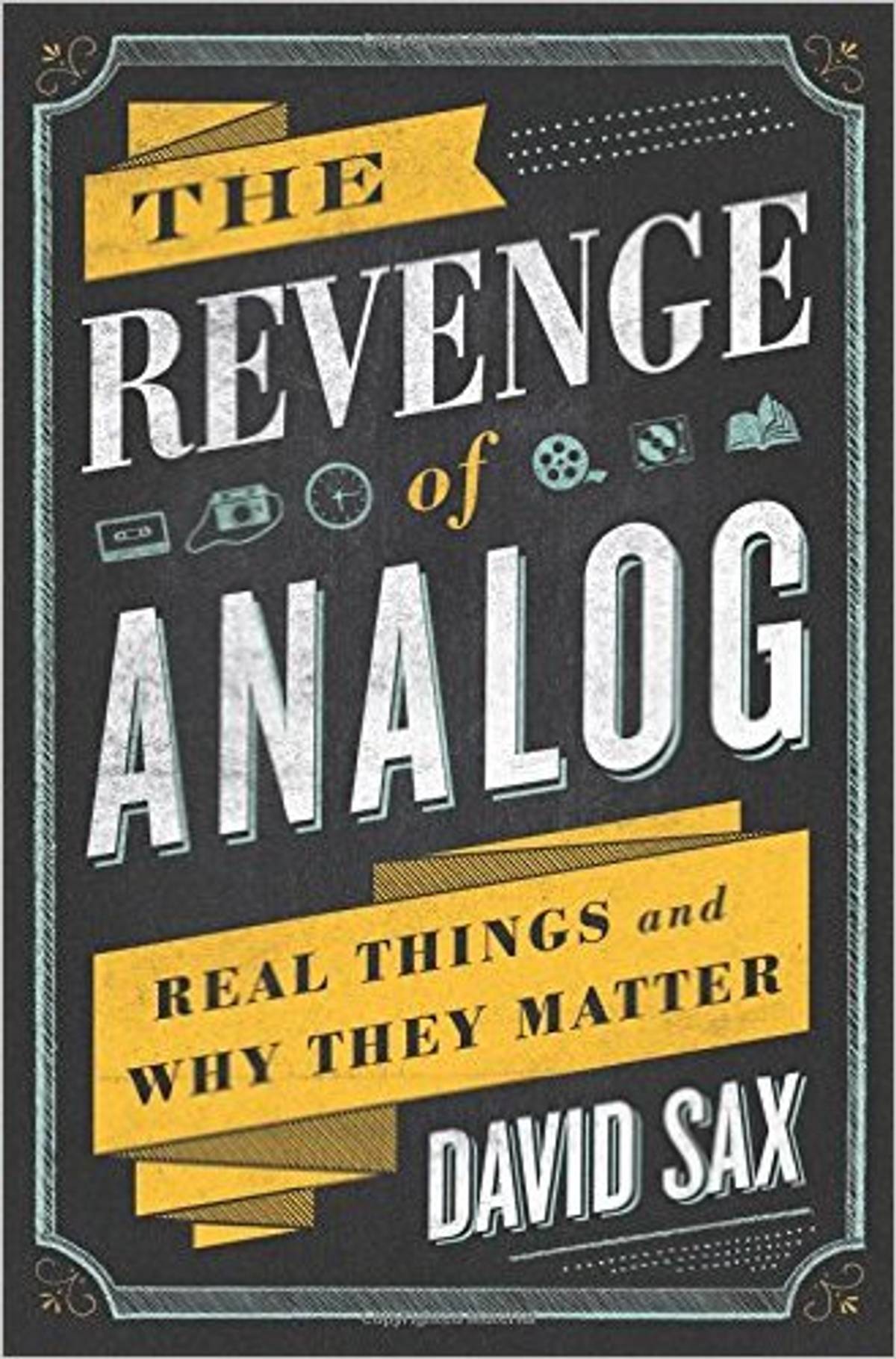The Unplugged Life
In ‘The Revenge of Analog,’ author David Sax explores the rewards of living untethered to digital technologies




Let’s say, for the sake of argument, that you wanted to start observing Shabbat, or Shabbat-lite, or a tech Shabbat. Maybe you aren’t going whole-hog—you’ll still cook and flip light switches—but you’re trying to unplug, avoid email and texts, maybe even television. You hope for serenity, but instead what you find is a lot of free time and that itchy feeling that comes from having free time to fill. “Its not like you turn off and do nothing,” said David Sax, the Canadian journalist and author of the new release The Revenge of Analog: Real Things and Why They Matter. “You need to replace it.”
Or so Sax discovered in 2007 after attending Reboot, the well-funded, invitation-only, three-day retreat and share-fest for Gen X/Y/Z creative types in the Utah mountains. Before the Friday night dinner, participants were asked to turn off their phones and computers for the next 24 hours. “I had a flip phone at this point,” said Sax when I spoke to him this week, “but was always on email. I turned off my laptop and found the experience so simple yet rewarding that when I went back home to Toronto, it was something I kept trying to practice each weekend. I don’t keep a kosher house, I don’t attend synagogue regularly, I am certainly not donning tefillin and davening every morning. But on Saturday, I could unplug.”

But then he was faced with a new question: “What do you do when you turn off everything?” So Sax found himself discovering old-fashioned pastimes like board games and playing vinyl records—the latter not being strictly shomer Shabbos, of course, but very much in the spirit of slowing down. “Then as I was doing it, I noticed there was interest in this stuff”—not just board games and vinyl but paper notebooks, real-film photography, and actual books, as opposed to e-books—“that wasn’t going away, and was growing in small ways. This was 2007, so it was really small at that point. But there were businesses doing things in analog even though everything was supposed to be digital.”
Sax, who had just written a book on the Jewish delicatessen, was off to the (foot-powered) races. He had his next topic.
For The Revenge of Analog, he visited vinyl-record stores like June Records in Toronto, bookstores like Book Culture in New York City, and the Italian headquarters of Moleskine, the ubiquitous paper notebook. He talked with the people retooling old machines to produce cinema-quality film, and he visited with teachers who had accepted the now-conclusive evidence that children learn best in person, with real teachers, not via teleconferencing. In short, Sax surveyed the analog counterculture, which he would argue is booming.
What makes The Revenge of Analog such a delight, and saves it from tedium, is that Sax is not anti-digital. Like other great techno-skeptics—Nicholas Carr, Jaron Lanier, Todd Oppenheimer, and the prophetic Clifford Stoll—he is conversant with digital technology and makes good use of it. It’s just that he hasn’t bought into the utopian hype that digital is all we need, and that the world can dispense with analog. “I have no illusion that analog is going to displace to replace digital in any sort of way,” Sax said. “I don’t imagine a turntable in every house in the Western world, but maybe it’s ten percent or fifteen percent, which is a significant amount.”
According to Sax, most of us made a fundamental error about the future of analog: We thought that, as digital products became more efficient and powerful, the value of analog would drop, which it has not (see: vinyl sales). Instead, “there has been a growing appreciation of analog in a general sense,” he said. “In each of our lives, it can occupy a place, and its value can be greater than it once was, because you don’t need to own a record player, or books, or a watch. So because you don’t need them, you want them. Or because you have now used note-taking apps, you now see the value of paper.”

Also, once the novelty wore off, certain limitations of digital technologies became apparent. Sax read on a Kindle for two years, then one day took a book out of the library (as he began research of The Revenge of Analog, in fact). “I opened the book I took from the library, and was like, ‘Fuck Kindle. I need books.’” His Kindle, he said, is now sitting in a drawer with the battery sign pleading to be charged.
I noted that the analog products that Sax exalts so lovingly in his book are, by and large, more expensive than their digital counterparts. He agreed, but he said expensive doesn’t mean a bad value. “It’s a luxury, vinyl, but you get something for your money,” he said. “If I pay $20 for a record that I could listen to for pennies on Spotify, I am getting something for that. I get a physical good. I get something to put on my wall. I get the sleeve. I get something that won’t go away, as long as there isn’t a flood or fire, long after Spotify is gone.”
In fact, it took companies like Spotify to make us realize the value of the things they’d replaced, which inheres, in good part, in the simple pleasure of owning things. “‘Hey, you no longer need to buy music, you can get it on Napster.’ Great, now I have that—now I want to buy something!” Sax said. “The idea we are then going to spend it all on tzedakah is a wonderful notion, but in many ways we express our identities through what we buy.”
Just not on Shabbat, of course.
Related: A Temple in Time
Mark Oppenheimer is a Senior Editor at Tablet. He hosts the podcast Unorthodox. He has contributed to Slate and Mother Jones, among many other publications. He is the author, most recently, of Squirrel Hill: The Tree of Life Synagogue Shooting and the Soul of a Neighborhood. He will be hosting a discussion forum about this article on his newsletter, where you can subscribe for free and submit comments.